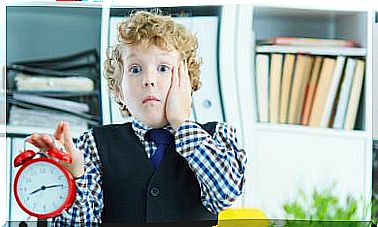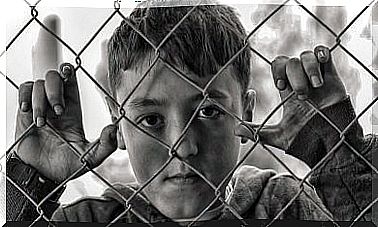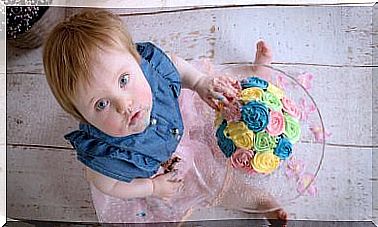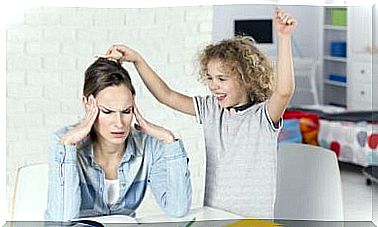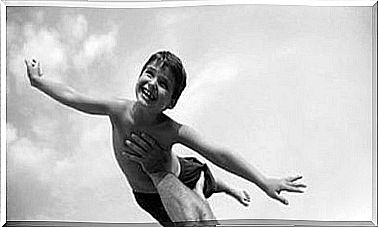5 Consequences Of Permissiveness

What is being permissive? According to the dictionary of the Royal Spanish Academy, permissiveness means excessive tolerance. Thus, permissiveness, a trait that characterizes the personality of some parents, causes children to grow up without clear rules and feel confused and unhappy.
One of the consequences of parental permissiveness is that their children become spoiled children, used to manipulating the people around them. But above all, the worst consequence of permissiveness is that it ultimately makes children feel lost and unloved.
That is because children expect their parents to guide and teach them, so allowing them everything makes them feel like they are not paying attention, and that creates low self-esteem.
Permissiveness causes harm
This damage, caused by not setting limits, is the result of the lack of tools that some parents have to impose discipline in a balanced way.
And it is that permissiveness -or the lack of clear rules- is a behavior that Carlos González, author of the book Bésame Mucho, exemplifies in this way:
“What is allowed today, tomorrow provokes an inordinate response, with the result that the child is confused and unhappy”
Consequences of permissiveness
Behavior problems
One of the most serious consequences of permissiveness in parenting is that children develop behavior problems. This is, we insist, a direct result of not having set norms and limits from an early age.
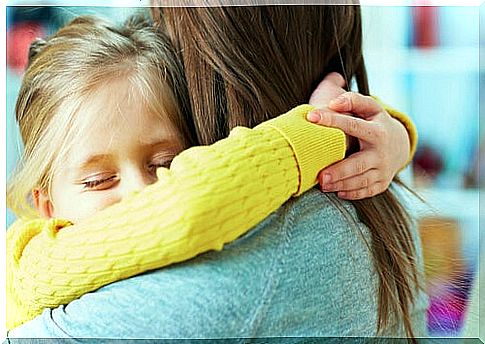
Low self-esteem
The abuse of freedom and the lack of limits and norms, in addition to the absence of a healthy relationship with children that is based on respect and understanding of the child as a human being, can have consequences such as low self-esteem.
Laziness
The lack of clear rules and routines results in children becoming unaware of their responsibilities, and therefore fostering the bad habit of procrastination or laziness.
Not knowing how to solve their own problems
Excessive permissiveness in many cases means that children do not learn to develop the social and emotional skills necessary to solve problems independently.
Some of these skills are achieved by fostering emotional intelligence, for which parental guidance is undoubtedly necessary.
Impulsiveness
As can be seen, the lack of clear rules creates very negative consequences for the little ones. Another one is that permissiveness fosters an immature and uncontrolled impulsive personality.
The importance of the balance between authoritarianism and permissiveness
In his text, González also challenges the reader and asks: What will have to be done to be “firm”? And he explains that being firm does not mean being authoritarian. Far from that, to grow healthy, a child needs parents who respect him, who treat him as a child (not as a premature adult) and who teach him to deal with the world.
And, certainly, to manage healthily it is necessary to learn to dialogue and reach agreements, but also to learn to follow norms and respect them consciously, not out of fear or fear of consequences. In addition, it is important for parents to know that house rules should not be negotiated at the whim of either the parents or the children; In that regard, being consistent is the key.
Some tips to keep your balance
No parent in the world wants to deliberately harm their children ; However, many unconsciously confuse the love they feel for their children with giving in to their every whim. Ideally, parents should fairly decide what is good for the child and what is not. In this way, children will better understand how they should regulate their behavior.
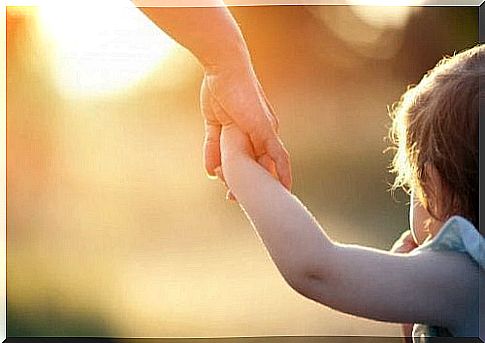
In addition to this, having parents who know how to discipline them in a respectful way makes children see in them a healthy reference of authority and values. Most parenting experts agree that far from being negative norms and limits are absolutely necessary, as they are a tool that helps children understand that their actions have consequences.
It is vital that parents manage to establish clear and timely limits for their children, that the house rules are discussed as a couple so that they are coherent and that these are dictated in a respectful way to the children.
Following these recommendations and delving into them with the help of your partner or an expert can help you keep your family away from the dire consequences of permissiveness.
It is very important that, as a mother, you check if there is an obsession in you or in your partner to give your child everything that you did not have when you were children. If so, work on it with some therapy. Giving your child comforts is not bad; however, all people must cultivate achievement of merit, that is, they must strive to achieve their own goals and privileges.

